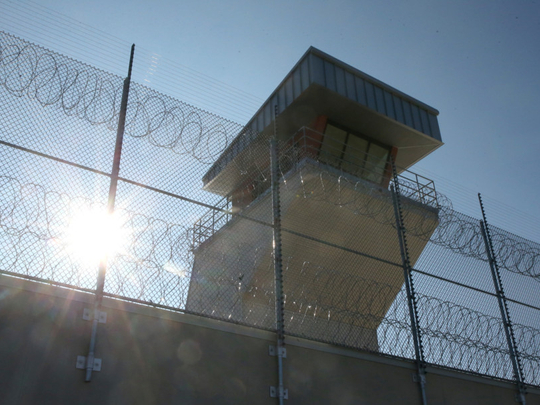
Kalief Browder, a 16-year-old New Yorker, was arrested on charges of stealing a backpack in 2010. To ensure he would show up for trial, and because of a previous offence, the judge set bail at $3,000 (Dh11,034). But his family could not afford to pay. So Browder was sent to jail on Rikers Island to await his day in court. He spent the next three years there before the charges were dismissed. Haunted by his experience, Browder hanged himself in 2015.
America’s justice system was designed with a promise: To treat all people equally. Yet, that doesn’t happen for many of the 450,000 Americans who sit in jail today, awaiting trial because they cannot afford to pay bail.
Whether someone stays in jail or not is far too often determined by wealth or social connections, even though just a few days behind bars can cost people their job, home, custody of their children — or their life.
As criminal justice groups work to change sentencing and mandatory minimum laws, America must also reform a bail system that is discriminatory and wasteful. Excessive bail disproportionately harms people from low-income communities and communities of colour.
Meanwhile, black and Latino defendants are more likely to be detained before trial and less likely to be able to post bail compared with similarly situated white defendants. In fact, black and Latino men, respectively, pay 35 per cent and 19 per cent higher bail than white men. This isn’t just unjust. It also wastes taxpayer dollars. Bail is supposed to ensure that the accused appear at trial and doesn’t commit other offences in the meantime. But research has shown that low-risk defendants who are detained more than 24 hours and then released are actually less likely to show up in court than those who are detained less than a day.
It is especially troubling that American bail system does not keep people safer. In a study of two large jurisdictions, nearly half of the defendants considered “high risk” were released simply because they could afford to post bail.
American bail system is broken. And it’s time to fix it.
That’s why we’re introducing the Pretrial Integrity and Safety Act to encourage states to reform or replace the bail system. This should not be a partisan issue.
First, America’s legislation empowers states to build on best practices. Kentucky and New Jersey, for instance, have shifted from bail towards personalised risk assessments that analyse factors such as criminal history and substance abuse. Colorado and West Virginia have improved pretrial services and supervision, such as using telephone reminders so fewer defendants miss court dates and end up detained.
These nudges work. Over the second half of 2006, automated phone call reminders in Multnomah County in Oregon, resulted in 750 people showing up in court who otherwise might have forgotten their date. Instead of the federal government mandating a one-size-fits-all approach, this bill provides Department of Justice grants directly to the states so each can devise and carry out the most effective policies, tailored for its unique needs.
Second, America’s bill holds states accountable. Any state receiving support must report on its progress and make sure that reforms like risk assessments are not discriminatory through analyses of trends and data. Finally, this bill encourages better data collection. Data on the pretrial process is notoriously sparse. By collecting information on how state and local courts handle defendants, we can help guarantee that reforms yield better outcomes.
More important, it would help restore people’s faith in the American justice system.
— New York Times News Service
Kamala D. Harris is a Democratic senator from California. Rand Paul is a Republican senator from Kentucky.









